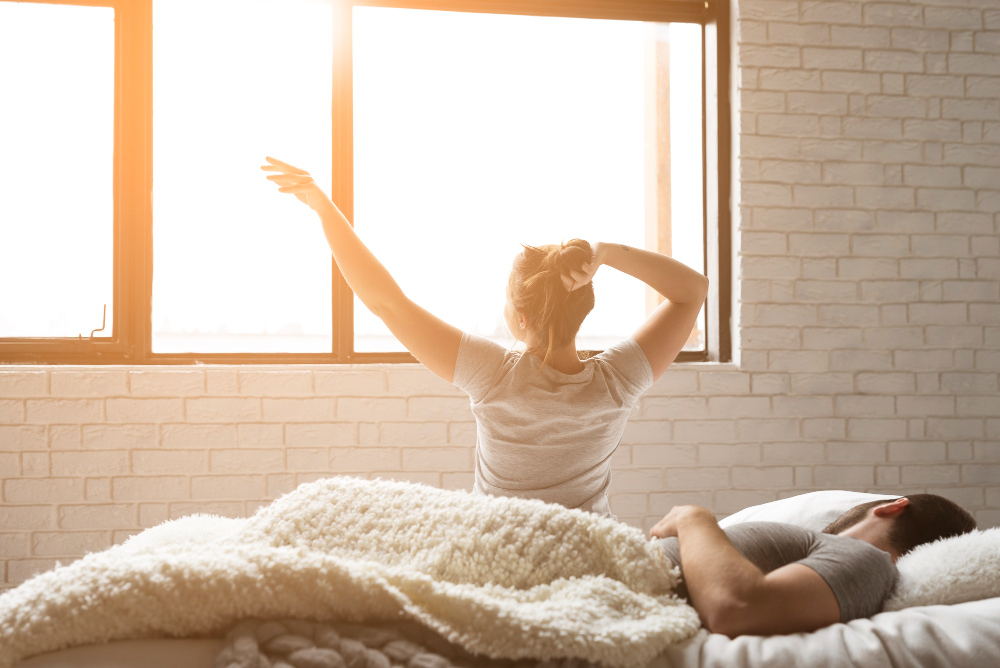Bigger Days, Better Sleep: The Surprising Connection

In the relentless pursuit of optimal health and well-being, we often scrutinize our diet, exercise, and stress management practices. However, the secret to improved vitality and performance might just be found in the bright light of day—literally. Emerging research suggests that how we spend our days, especially our exposure to natural daylight, can significantly influence the quality of our sleep. Let’s delve into the fascinating interplay between daylight exposure, our circadian rhythms, and ultimately, our sleep quality.
The Science of Circadian Rhythms
At the core of this connection lies our circadian rhythm, a 24-hour internal clock running in the background of our brain that cycles between sleepiness and alertness at regular intervals. This “master clock” is directly influenced by environmental cues, most notably light, which helps synchronize our biological clock to the 24-hour day-night cycle.
Exposure to natural daylight helps to reset our circadian rhythms each day, promoting a healthy sleep-wake cycle. Sunlight, particularly in the morning, signals our brains to wake up and prepares our bodies for the day ahead. Conversely, the absence of light signals that it’s time to sleep. This is why irregular light exposure can lead to disrupted sleep patterns or sleep disorders.
Daylight and Sleep Quality: The Connection
Bigger days—in terms of more daylight exposure—can indeed lead to better sleep at night. Here’s why:
1. Improved Sleep Efficiency
Studies have shown that people who get more natural light during the day tend to fall asleep more quickly at night and experience fewer sleep disturbances. The exposure to sunlight helps regulate the production of melatonin, the hormone responsible for sleep, ensuring that its release is appropriately timed to when it gets dark.
2. Enhanced Mood and Alertness
Daylight doesn’t just affect our sleep; it also impacts our mood and alertness. Natural light exposure increases serotonin levels, a neurotransmitter associated with mood elevation and a feeling of calmness. This not only makes us feel more awake and alert during the day but also contributes to a more restful sleep at night.
3. Better Sleep Timing
Getting enough daylight helps keep our sleep-wake cycle in tune with the natural environment. This synchronization ensures that our bodies are primed for sleep at the right time, helping us adhere to a consistent sleep schedule, which is crucial for high-quality sleep.
Making the Most of Daylight for Better Sleep
Here are some practical tips for incorporating more daylight into your daily routine to enhance your sleep quality:
- Morning Light: Aim to get 20 to 30 minutes of natural sunlight as soon as possible after waking up. Even on a cloudy day, the outdoor light is stronger than most indoor lighting.
- Midday Breaks: Take short breaks during the day to step outside. A brief walk or even just standing in natural light can be beneficial.
- Workspace Lighting: If possible, position your workspace near a window to increase your exposure to natural daylight during the day.
- Limit Evening Blue Light: Reduce exposure to blue light from screens in the evening to avoid disrupting your circadian rhythm and melatonin production.
The Bottom Line
While the modern lifestyle often confines us indoors, making a conscious effort to step into the natural light can profoundly impact our sleep health. Bigger days filled with daylight do not just energize us; they pave the way for better sleep, proving once again that nature holds the key to our well-being. So, embrace the daylight and watch as your nights transform into a haven of restful sleep.
